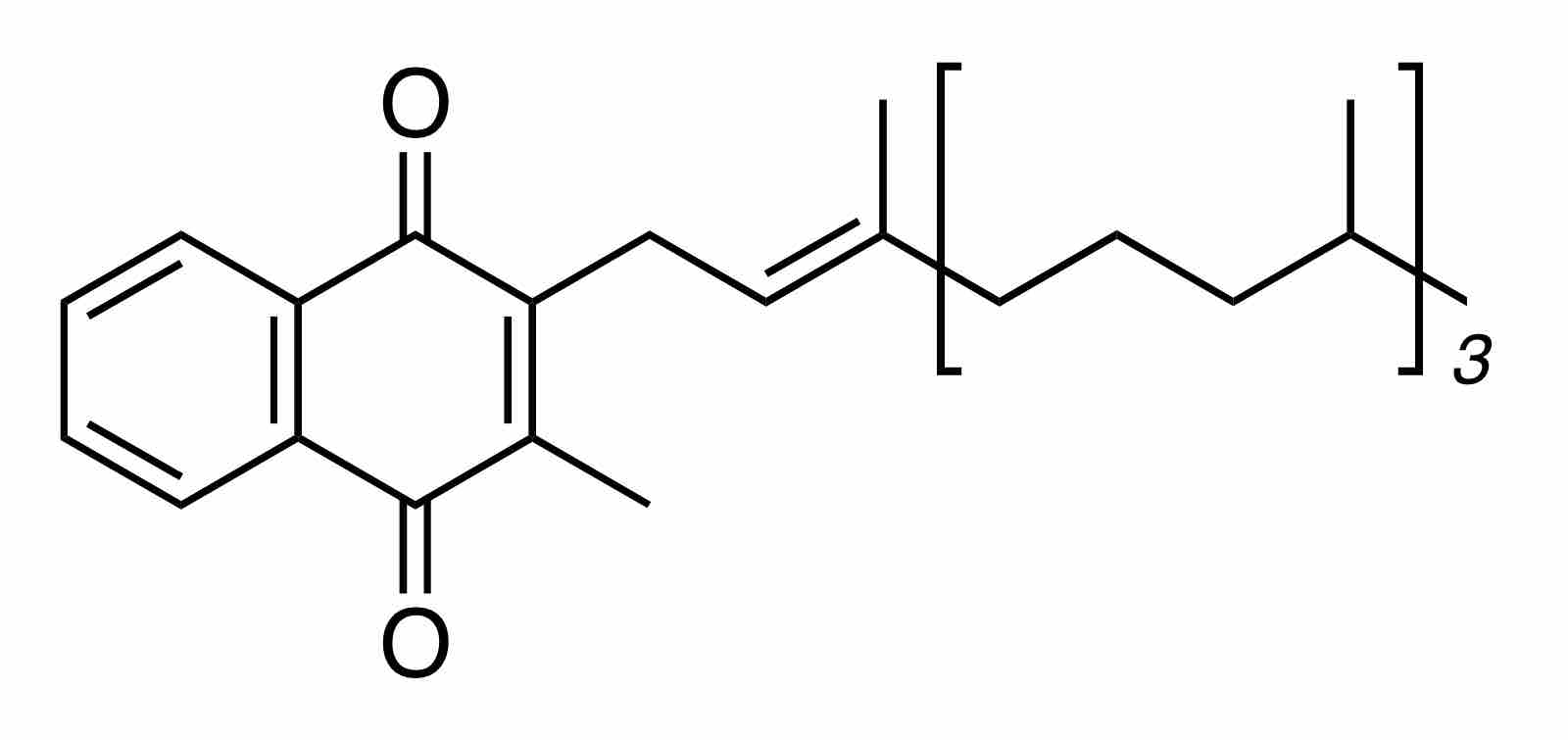Amino Acids
Amino acids are biologically important organic compounds made from amine (-NH2) and carboxylic acid (-COOH) functional groups, along with a side-chain specific to each amino acid. The key elements of an amino acid are carbon, hydrogen, oxygen, and nitrogen. About 500 amino acids are known which can be classified in many ways.
Microorganisms and plants can synthesize many uncommon amino acids. For example, some microbes make 2-aminoisobutyric acid and lanthionine, which is a sulfide-bridged derivative of alanine. Both of these amino acids are found in peptidic lantibiotics such as alamethicin. While in plants, 1-aminocyclopropane-1-carboxylic acid is a small disubstituted cyclic amino acid that is a key intermediate in the production of the plant hormone ethylene.
Vitamins
Vitamin K is a group of structurally similar, fat-soluble vitamins that are needed for the posttranslational modification of certain proteins required for blood coagulation and in metabolic pathways in bone and other tissue . They are 2-methyl-1,4-naphthoquinone (3-) derivatives. This group of vitamins includes two natural vitamers: vitamin K1 and vitamin K2.

Vitamin K1 (phylloquinone)
This is vitamin K1 (phylloquinone). Both forms of the vitamin contain a functional naphthoquinone ring and an aliphatic side-chain. Phylloquinone has a phytyl side-chain.
Vitamin K1, also known as phylloquinone or phytomenadione (also called phytonadione), is synthesized by plants, and is found in highest amounts in green leafy vegetables because it is directly involved in photosynthesis.
Vitamin K2 has several subtypes, one of which is involved in bone metabolism. Vitamin K2 homologs (menaquinones) are characterized by the number of isoprenoid residues in their side chain. Menaquinones are abbreviated MK-n, where n represents the number of isoprenoid side chain residues. For example, menaquinone-4 (abbreviated MK-4), has four isoprene residues in its side chain. Bacteria in the colon (large intestine) can produce a range of vitamin K2 forms, and can also convert K1 into K2 (MK-7 homolog). No known toxicity exists for vitamins K1 or K2.
Three synthetic types of vitamin K are known: vitamins K3, K4, and K5. Although the natural K1 and K2 forms are nontoxic, the synthetic form K3 (menadione) has shown toxicity.